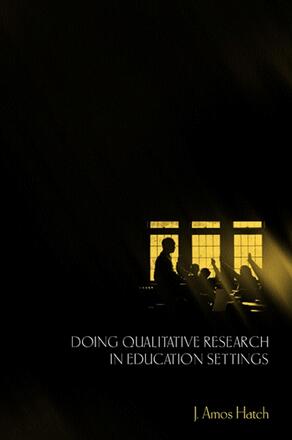
Doing Qualitative Research in Education Settings
Alternative formats available from:
A step-by-step guide to qualitative research in the field of education.
Description
A new second edition of this title has been published on 9/1/2023 (HC ISBN 9781438494616; PB ISBN 9781438494609
J. Amos Hatch offers a methods book that speaks directly to novice qualitative researchers in the field of education, providing a step-by-step guide to the development of a research project. Written in accessible language, the book emphasizes learning how to do qualitative work. Specific examples from real studies, using real data, and demonstrating real analyses are provided throughout. The book is designed to guide doctoral candidates through the dissertation process, from unpacking assumptions and identifying research questions, through project design, data collection, and analysis, to writing the final draft. Recommendations for writing and publishing qualitative work are included.
J. Amos Hatch is Professor of Theory and Practice in Teacher Education at the University of Tennessee and the editor of Qualitative Research in Early Childhood Settings and coeditor (with Richard Wisniewski) of Life History and Narrative. He was coeditor (with Richard Wisniewski) of the International Journal of Qualitative Studies in Education for five years.
Reviews
"Even though some of the material is extremely sophisticated, the text is accessible. The guidance for navigating the difficulties of writing and publishing qualitative research is particularly helpful and unique for a methods book. " — Childhood Education
"Timely and up-to-date, this is a major new work in this area. Wonderfully written, solid scholarship. " — Norman K. Denzin, coeditor of Handbook of Qualitative Research, Second Edition and The Qualitative Inquiry Reader
"An excellent book. It is highly accessible, even though some of the material is extremely sophisticated; it is comprehensive, and its use of examples gives a very real, practical sense of the issues. The author has taken advantage of the fact that qualitative research is at a watershed period. He has read everything, and created a synthesis which others might have attempted, but have not done well, if at all. I predict that this book will become the standard in the field of education. " — Yvonna S. Lincoln, coeditor of Handbook of Qualitative Research, Second Edition and The Qualitative Inquiry Reader